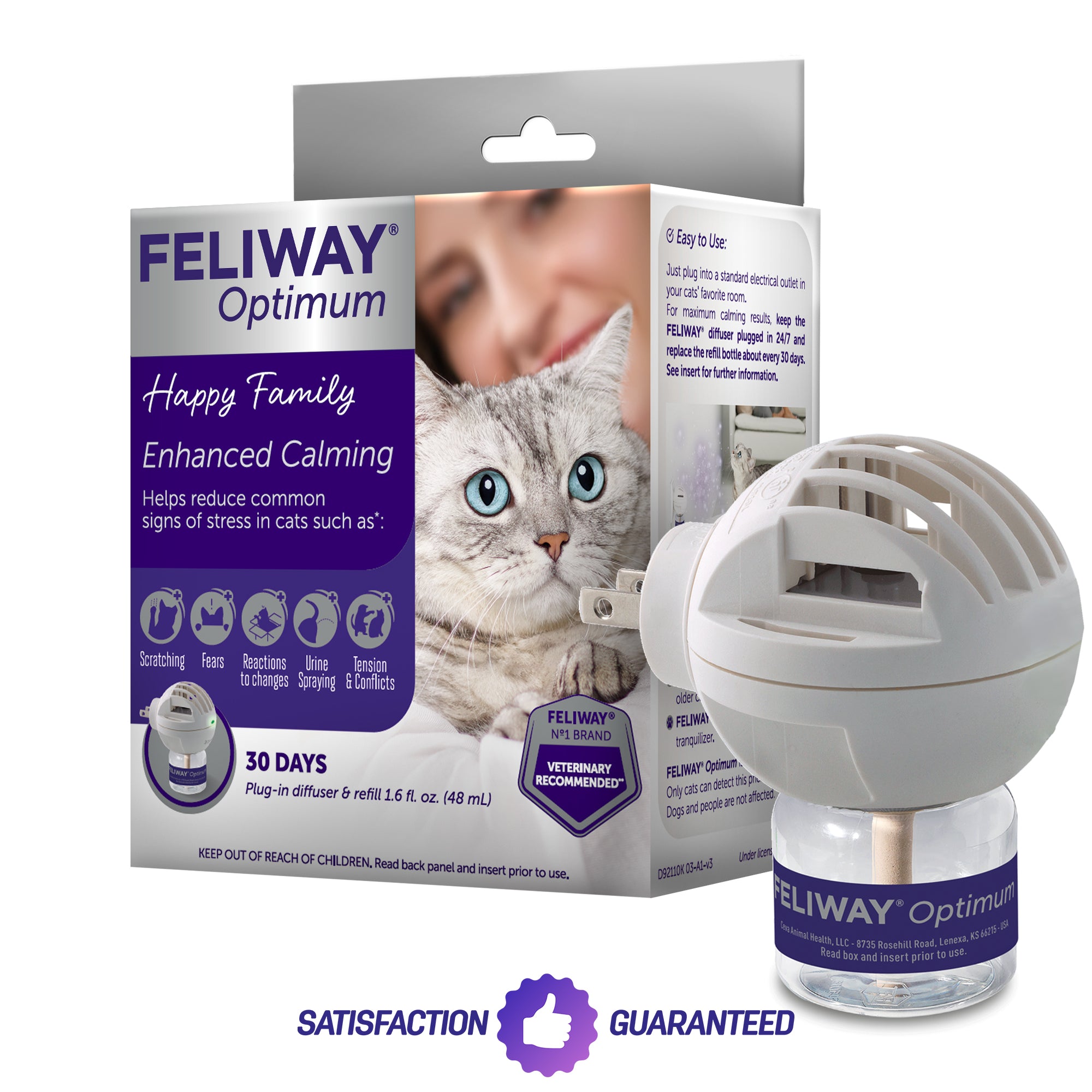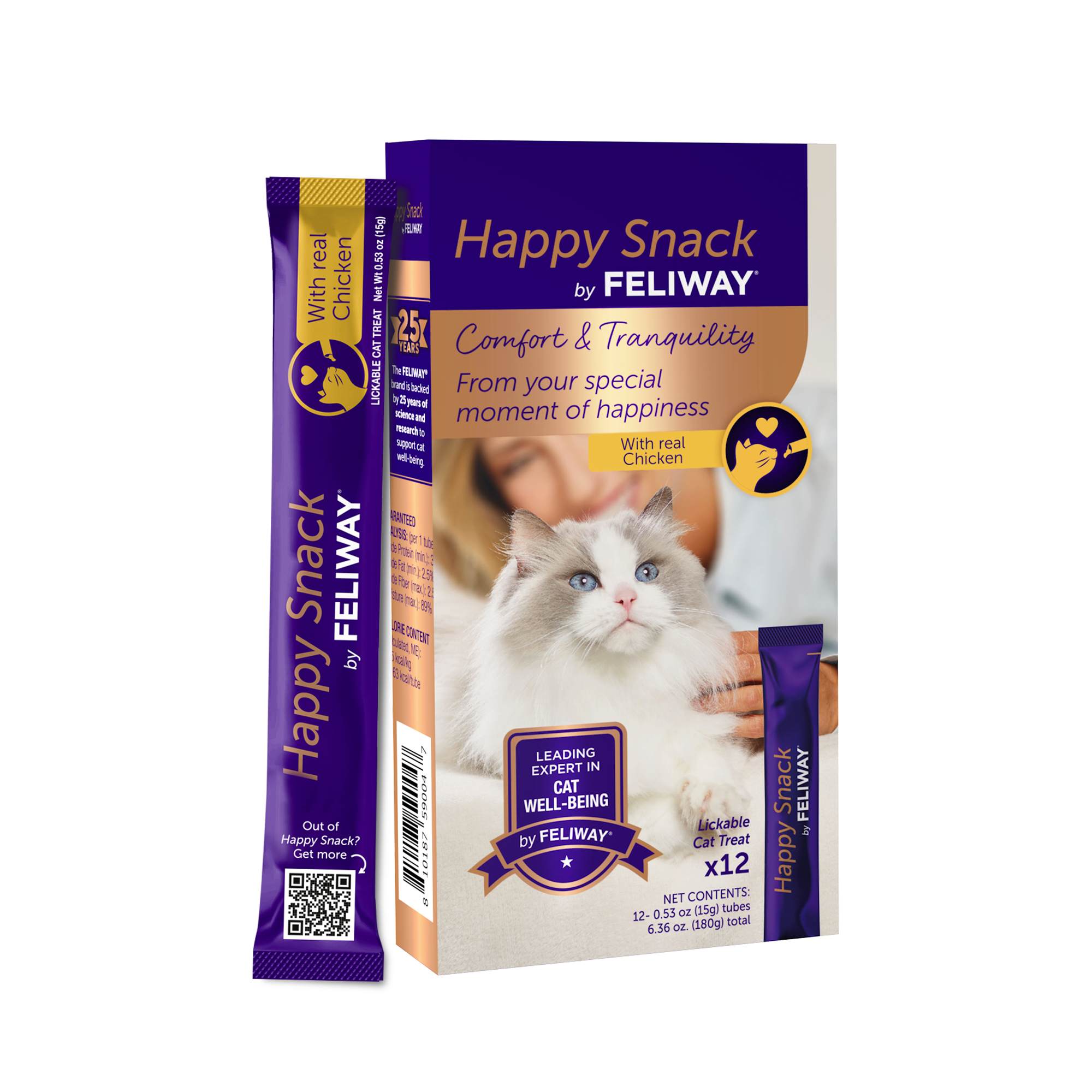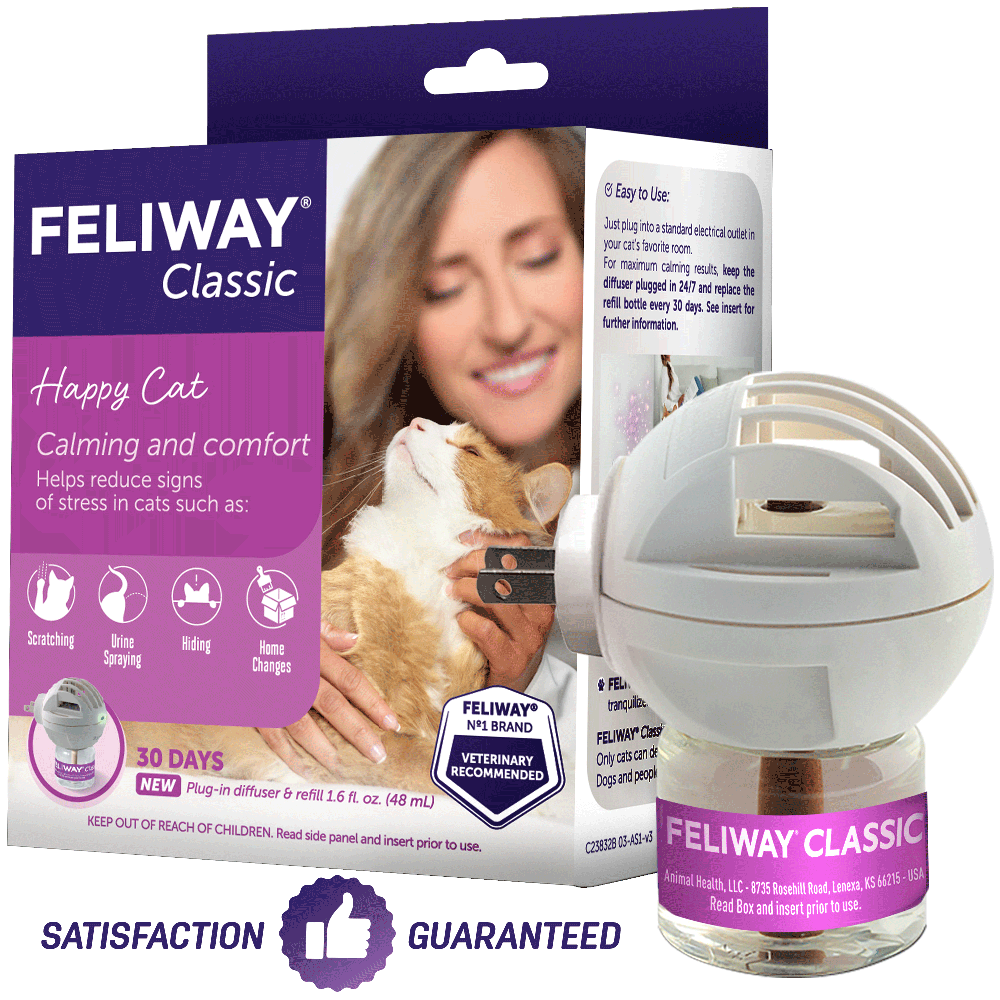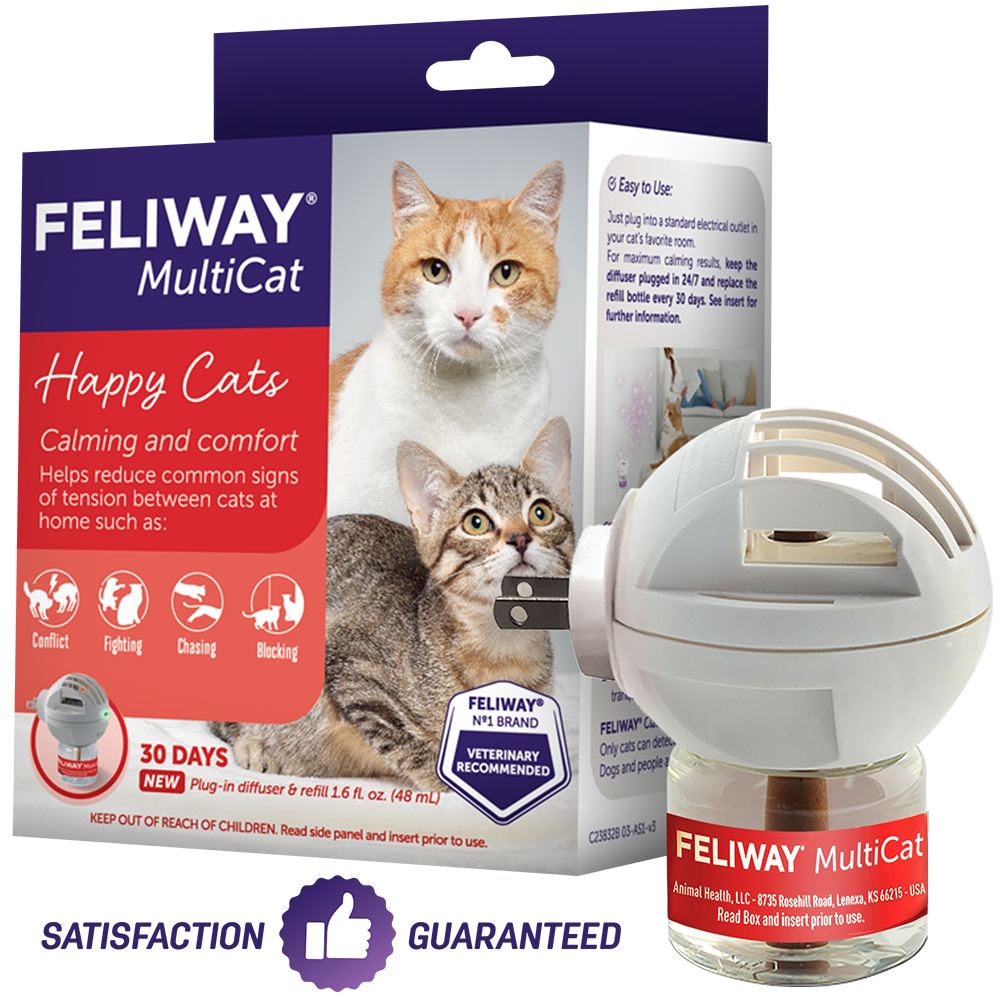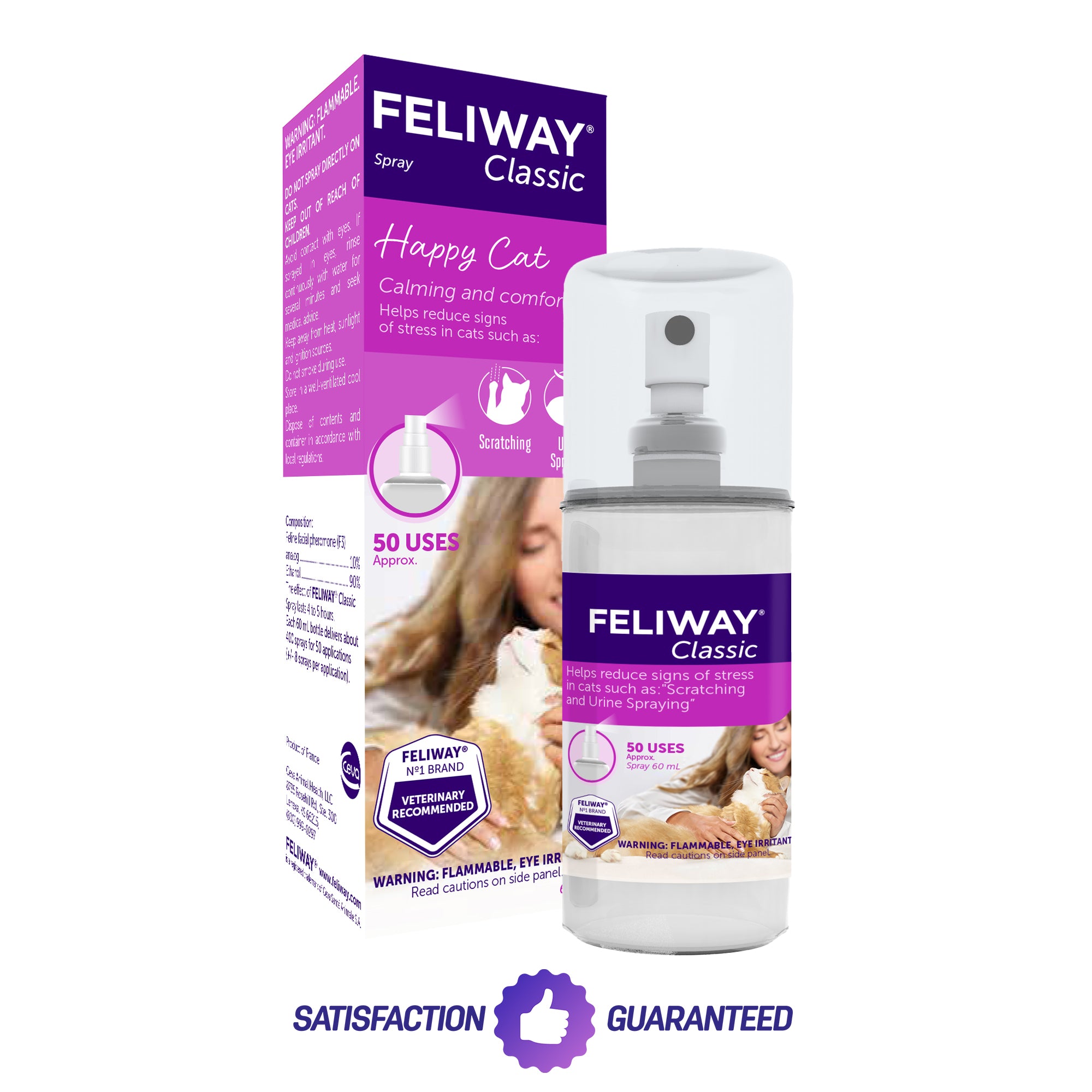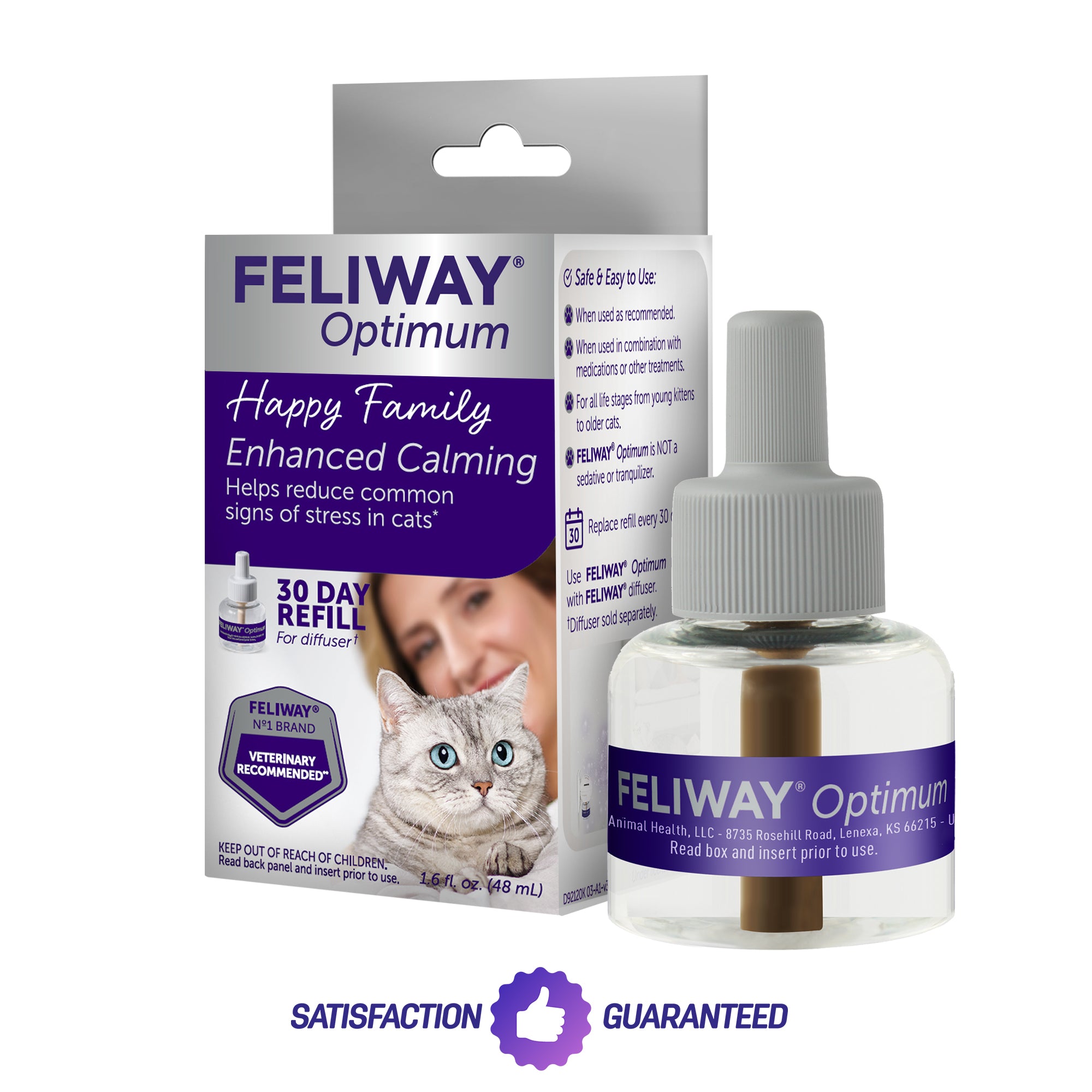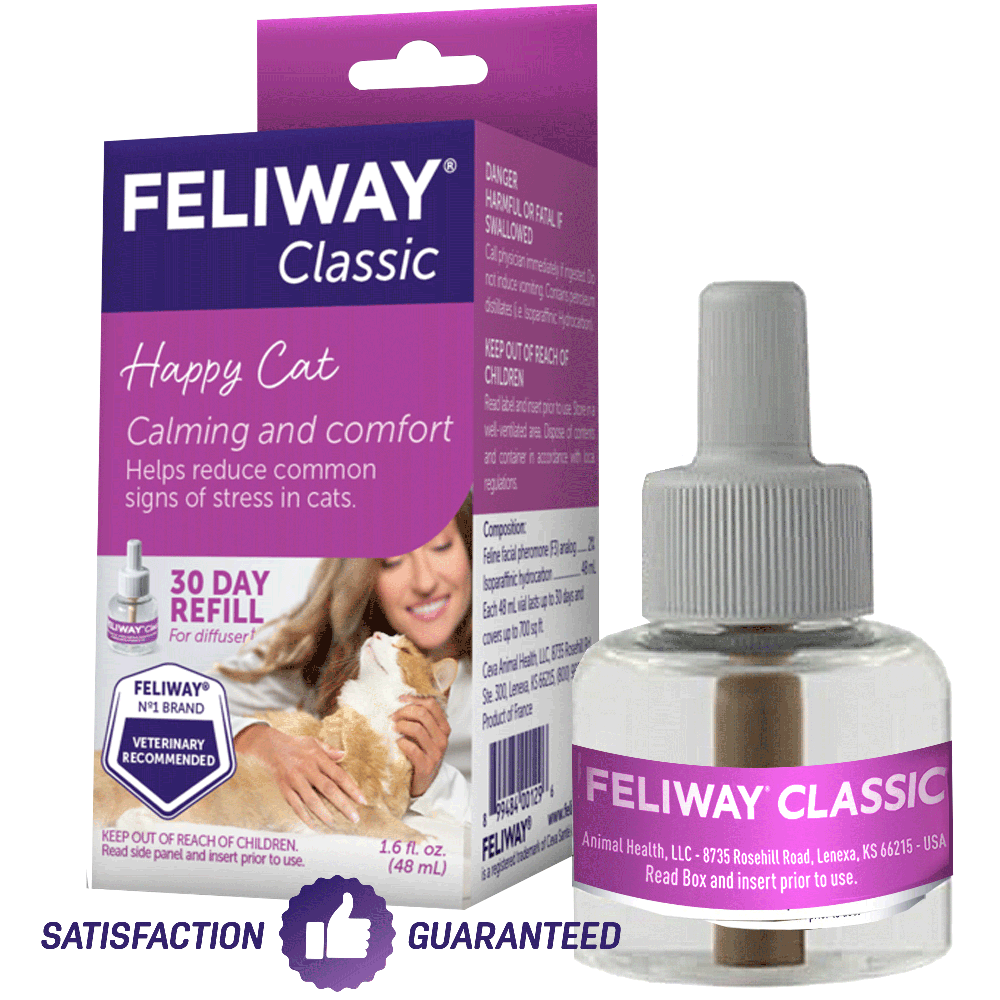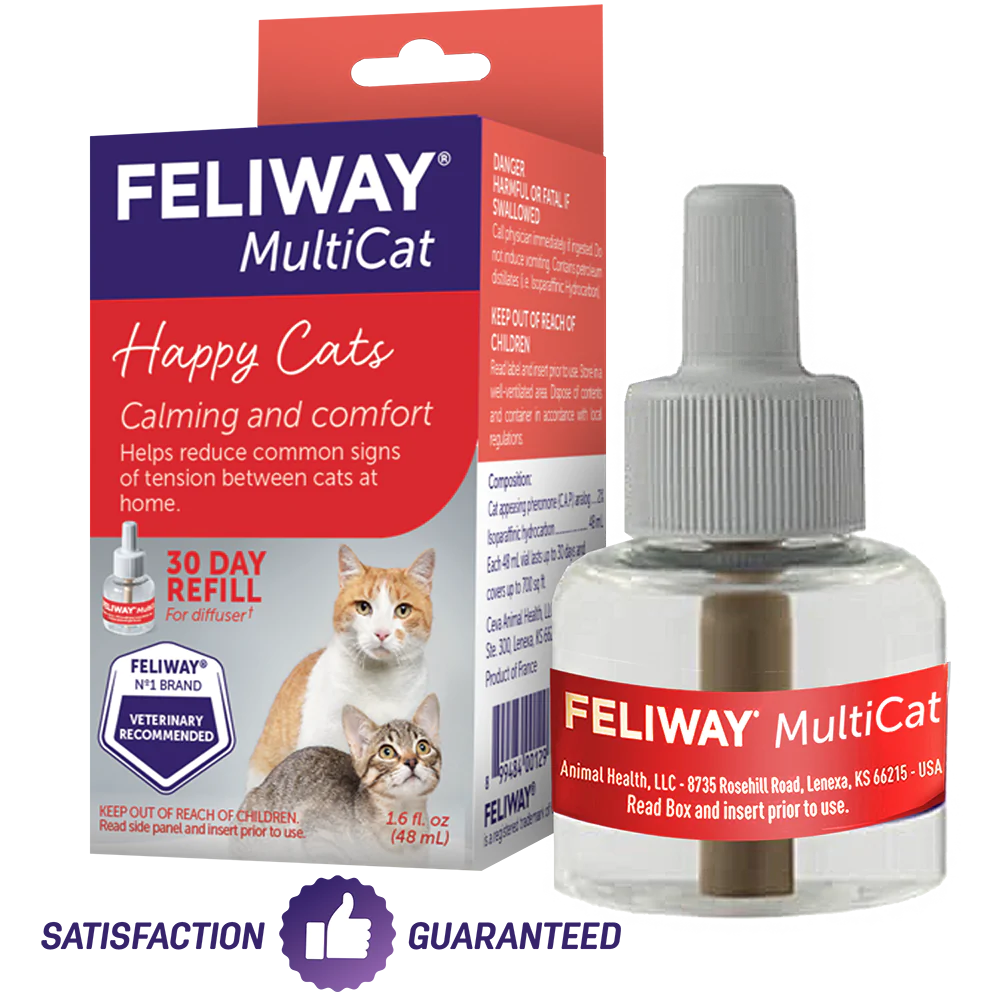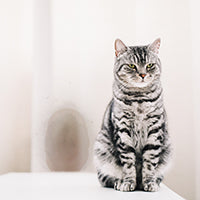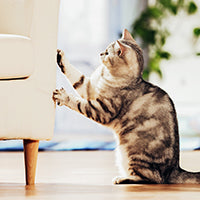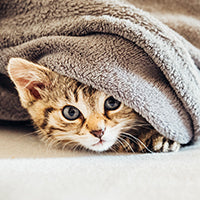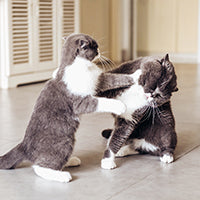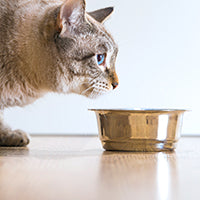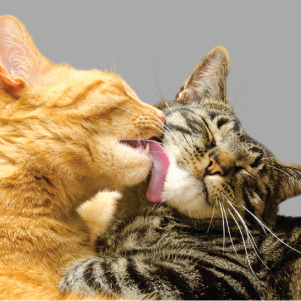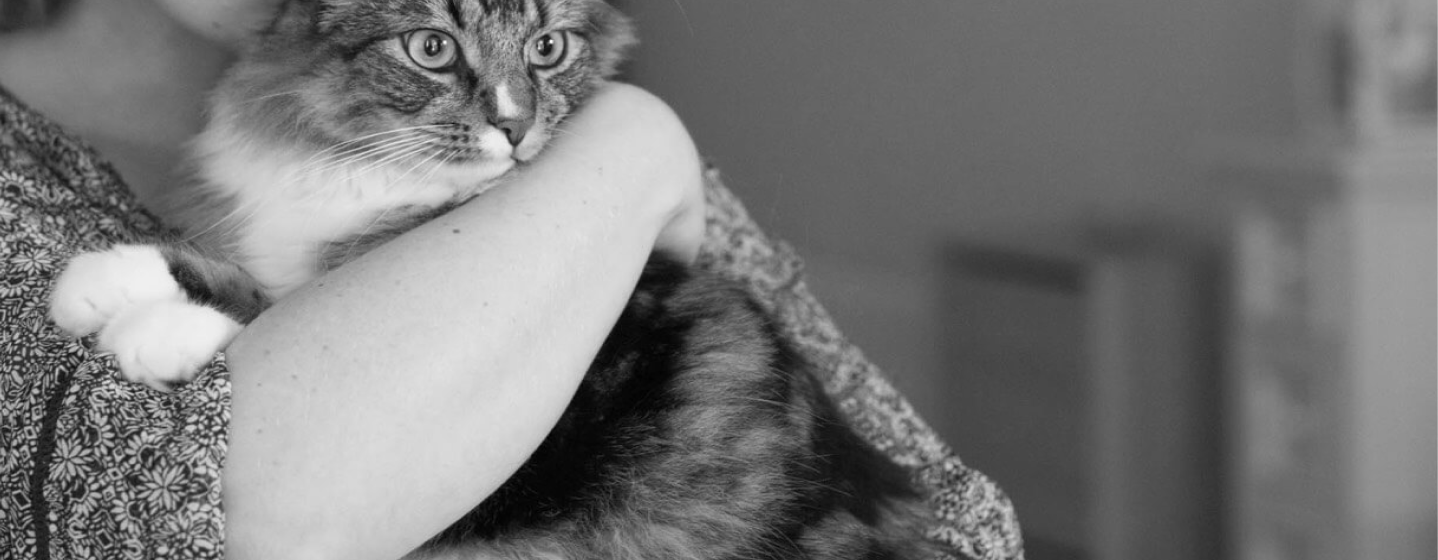IS YOUR CAT IS EATING LESS?
Tips if Your Cat Has a Reduced Appetite
-
Help Your Cat Feel Less Stressed with FELIWAY® Optimum
- FELIWAY® creates a calming environment by mimicking the natural calming signals that cats produce to create secure surroundings. It’s drug free, scent-free and can’t be detected by humans or other pets
- FELIWAY® releases serenity messages, similar to pheromones, to create a calmer environment for your cat
- FELIWAY® is the #1 vet recommended brand to reduce stress in cats; if your cat's reduction in appetite is due to stress, we recommend trying FELIWAY®
- Results may be seen within the first 7 days of use; for the best results, we recommend continuous use for a minimum of one month
- Buy now to help create a create a calmer environment in your home
-
Consult with your vet
- Medical issues can cause changes in appetite, so make sure to check in with your vet if your cat has had a loss in appetite
-
Follow feeding “golden rules”
- Offer tasty food: try different flavors, in both wet and dry formats, to see what your cat prefers. Food that is smelly to humans is very appealing to cats. Often times, the stinkier the better.
- Have their food bowl in a quiet room
- Ensure their food bowl (and water) is always accessible
- Each cat should have their own food bowl, which is away from their water bowl and litterbox
-
Try to understand why your cat's appetite may have changed
- Has there been a recent change to their food? It is possible they do not like the new food
- Is there competition with another cat for food? We recommend each cat have their own food bowl in separate locations
- Have there been recent changes at home, such as moving, new furniture, or redecorating?
- Recent traveling or boarding?
- Other changes that could cause stress?
- Cats are very habitual animals, so a seemingly small change can cause your cat stress; loss of appetite could be a sign of stress in your cat
- If your cat is stressed due to a recent change, be sure to be patient with them as they adjust
We recommend:
-
As seen on TV
-
Recommended by vets
-
1 million+ Facebook likes
-
25+ years of expertise
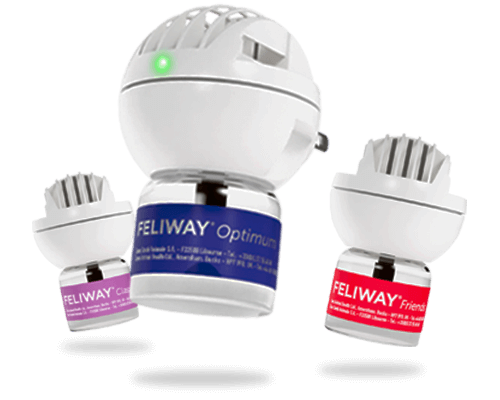
Which Feliway® Product is Right for My Cat?
Take The Quiz
Frequently asked questions:
FREQUENTLY ASKED QUESTIONS - CAT APPETITE
Find quick, expert-backed answers to the most common questions about FELIWAY, cat behavior, and how to create a stress-free environment for your feline friend.
WHY DO CATS LOSE THEIR APPETITE?
Cats not eating can have either a medical or an emotional cause. We recommend consulting with your vet to rule out any possible medical causes for this change.
Cats will also eat less when they feel disturbed or insecure.
Many things may conflict your cat’s natural need for stability, such as:
- Travelling or a stay at a cattery disrupts your cat's normal routine
- Changes in the home (e.g. ) can upset cats
- A recent change in type of food, as it may take time to get used to a new diet
- Competition with other cats for food or water, or even the presence of a dog, can keep your cat away from their food bowl
- Use to help keep your cat feeling comfortable and return to eating normally.
HOW CAN I INCREASE MY CAT’S APPETITE?
Cats prefer to eat alone, so to increase your cat’s appetite, ensure their feeding area is quiet, stress-free, and away from other cats. That being said, some cats may actually be encouraged to eat by your presence. More tips to help increase your cat’s appetite include:
- Move the location of your cat’s food bowl, being mindful of things that may make your cat less comfortable, such as a full-length window or a nearby cat flap.
- Try a different food bowl. For example, you could try a wide, flat saucer to avoid whisker fatigue, or swap from a plastic bowl to a ceramic bowl.
- Try tapping into your cat’s natural hunting instincts with activity feeders.
- Warming up food can help too as the food becomes smellier and more enticing.
- Consider your cat’s preferences for taste and texture, such as with chicken, fish, or wet versus dry food.
- Try feeding your cat by hand.
- If your cat has a reduced appetite due to stress, FELWAY® Optimum can address symptoms of stress by mimicking the natural calming messages that cats use to communicate. If appetite issues persist, consult a veterinarian to rule out any underlying health concerns.
HOW DO I FEED MY CAT WITH NO APPETITE?
Feeding a cat with no appetite can be challenging, but there are ways we can help. Most importantly, you should consult a veterinarian to identify any underlying health issues. Cats should not go over 24-48 hours without food – or less if they have certain medical conditions – and if this happens you should see a vet right away. They may also be able to prescribe medications to boost appetite, while some cats may need to have a feeding tube to get them eating.
Remember, it’s important never to force food into a cat’s mouth. This can create food aversion and put them off that food.
CAN HOT WEATHER AFFECT MY CAT’S APPETITE?
Yes, hot weather can affect a cat’s appetite, but this isn’t necessarily a problem! Research has shown that cats need less energy in warmer weather to maintain their body temperature, meaning they generally eat around 15% less food in summer. This is a natural way for cats to cope with the changing seasons, so there’s no need to encourage cats to eat more if this is the cause for their reduced appetite. Otherwise, encouraging them to eat can lead to your cat taking in more calories than they need. That being said, if appetite loss persists or you notice other signs of distress, consult a veterinarian.
DO CATS LOSE THEIR APPETITE AS THEY GET OLDER?
Yes, your cat’s appetite can change over time, particularly as they grow older. This can be due to a variety of factors, one of which may simply be that they’re less active and therefore need less calories. In these situations, you may need to adjust your cat’s portion sizes to ensure they’re not eating more than they need. Weighing your cat regularly will help you keep an eye on whether they’re maintaining their weight.
Other reasons that may cause a cat’s appetite to change over time can include a decreased sense of smell and taste, dental problems, or underlying health issues like sore joints or problems with their kidneys. Older cats should have regular health checks, and if a change is noted in their appetite or anywhere ese, it’s best to contact a vet for a check-up. Your cat’s diet is also important for keeping them as healthy as possible, so a vet will also be able to discuss the best diet for an older cat.
Offering highly palatable, easy-to-eat foods, and ensuring a comfortable, stress-free eating environment can help to maintain an older cat’s appetite. Using FELIWAY® Optimum can also boost your cat’s serenity and help them on their path to a healthy appetite!
CAN ANTIBIOTICS MAKE A CAT LOSE THEIR APPETITE?
Yes, antibiotics can sometimes cause a cat to lose their appetite. Like in humans, antibiotics in cats can cause gastrointestinal upset, nausea, and a decrease in appetite. If you notice your cat eating less while on antibiotics, it’s essential to consult with your veterinarian. They may recommend an alternative medication that your cat has a different reaction to.
It’s also worth mentioning that many people try to encourage their cats to take their medication by hiding tablets in their food. However, cats may be more perceptive than you think! Your cat is likely aware of any hidden medication and this may actually be why they don’t want to eat their food.
